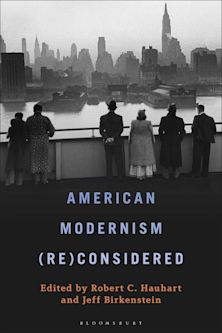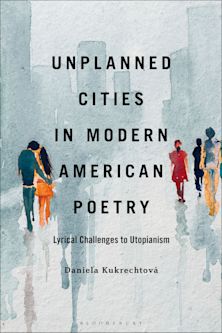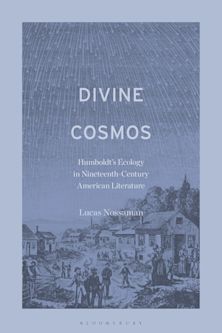- Home
- ACADEMIC
- Literary Studies
- North American and Caribbean Literature
- Double Vision
Double Vision
Eighteenth and Nineteenth Century Literary Palimpsests
Darby Lewes (Anthology Editor) , Brian Bates (Contributor) , Liam Corley (Contributor) , Michael P. Farrell (Contributor) , Michael J. Flynn (Contributor) , Paul Fox (Contributor) , Diane Long Hoeveler (Contributor) , Erin Menut (Contributor) , Jeff Miles (Contributor) , Christy Rieger (Contributor) , Laurence Talairach-Vielmas (Contributor) , Zoe Trodd (Contributor) , William Wandless (Contributor) , Alex Watson (Contributor) , Christopher Whalen (Contributor)
Double Vision
Eighteenth and Nineteenth Century Literary Palimpsests
Darby Lewes (Anthology Editor) , Brian Bates (Contributor) , Liam Corley (Contributor) , Michael P. Farrell (Contributor) , Michael J. Flynn (Contributor) , Paul Fox (Contributor) , Diane Long Hoeveler (Contributor) , Erin Menut (Contributor) , Jeff Miles (Contributor) , Christy Rieger (Contributor) , Laurence Talairach-Vielmas (Contributor) , Zoe Trodd (Contributor) , William Wandless (Contributor) , Alex Watson (Contributor) , Christopher Whalen (Contributor)
This product is usually dispatched within 1 week
- Delivery and returns info
-
Free US delivery on orders $35 or over
You must sign in to add this item to your wishlist. Please sign in or create an account
Description
A palimpsest is at once easy to define and, at the same time, so infinitely various as to defy all denotation. A thrifty technique employed by the ancients to recycle scarce resources? Or a metaphor for the human mind? A text that overwrites another text? Or a culture that overwrites another culture? This concise, readable volume examines texts written by such figures as William Blake, Wilkie Collins, Edgar Allan Poe, and Frederick Douglass, in order to explore the dualistic thinking involved in the creation of literary palimpsests during the tempestuous eighteenth and nineteenth centuries.
Contributors to this collection analyze the alienation and disorientation caused by the tremendous social and political revolution going on throughout the eighteenth and nineteenth centuries in the United States and Great Britain. Writers and philosophers of the time were charged with the task of reorienting themselves and their readers within the ever-changing social and political constructs that characterized their lives. Double Vision shows how these writers employed the use of the palimpsest in their attempts to strike a balance between preserving old ways and privileging new innovations.
Table of Contents
2 Acknowledgments
Chapter 3 Introduction: Homotextuality: Revealed and Revealing Texts
Part 4 I. The Eighteenth Century: From Reason to Romanticism
Chapter 5 1. Richardson Agonistes: The Trial of the Author in the Contest for Authority
Chapter 6 2. Marginal(ized) Blake: The Annotations to Reynolds's Discourses
Chapter 7 3. William Blake and the Bible: Reading and Writing the Law
Chapter 8 4. The Dark Assassin: Thomas James Mathias's Notes for The Pursuits of Literature
Part 9 II. The Romantic Period: Overwriting Neoclassicism
Chapter 10 5. De Quincey and the Palimpsest
Chapter 11 6. "Things as They Are": Godwin's Caleb Williams and the Politics of the Preface
Chapter 12 7. Opening up Chapter 13 of Coleridge's Biographia Literaria: Humor, Reception, and English Character
Part 13 III. The Victorian Period: Decorum and Decadence
Chapter 14 8. Tennyson's The Princess as Palimpsest: The Oriental Tale and Woman's Nature
Chapter 15 9. "What Remains?": Intertextual Itinerary and Palimpsestic Melancholia in Christina Rossetti's "Monna Innomminata"
Chapter 16 10. Memory as a Palimpsest in Wilkie Collins's The Haunted Hotel
Chapter 17 11. On the Fin de Siècle Margin: Justifying the Texts of T. K. Nupton, Max Beerbohm, and Enoch Soames
Chapter 18 12. Parodies for the Rail: Dombey and Son, Vanity Fair, and the Class-Coding of Victorian Realism
Part 19 IV. Nineteenth-Century Voices from America
Chapter 20 13. The Middle Passages of Arthur Mervyn
Chapter 21 14. Reading Poe Reading Blackwood's: The Palimpsestic Subtext in "The Fall of the House of Usher"
Chapter 22 15. The Spaces Left: Resistance and Erasure in Frederick Douglass's Palimpsestic Narratives
Chapter 23 Works Cited
Chapter 24 Index
25 About the Contributors
Product details
| Published | Sep 26 2008 |
|---|---|
| Format | Hardback |
| Edition | 1st |
| Extent | 296 |
| ISBN | 9780739125694 |
| Imprint | Lexington Books |
| Dimensions | 10 x 6 inches |
| Publisher | Bloomsbury Publishing |
About the contributors
Reviews
-
Taken together, the chapters of this book . . . make a real contribution to the field.
Larry H. Peer, Brigham Young University


































